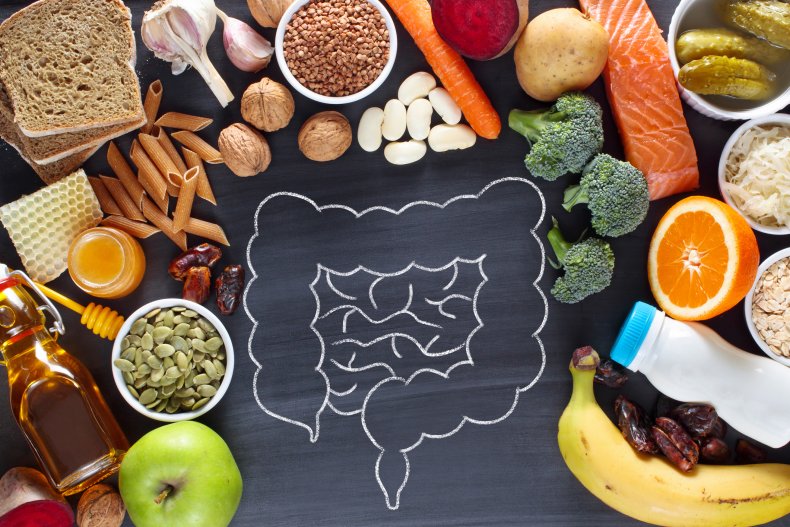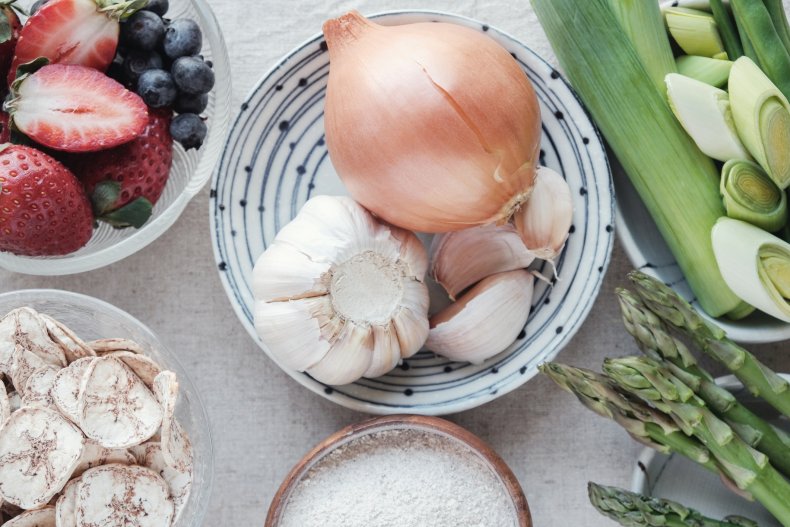Go into any health food shop and you will be overwhelmed by a selection of different "probiotics" products that promise to restore the balance of "good" bacteria in your gut. But less attention is paid to the foods that support the good bacteria that are already in there.
These so-called prebiotics are a form of dietary fiber that have been shown to promote the growth of beneficial bacteria in our guts. These bacteria—known collectively as the gut microbiome—play an important role in everything from digestion to immunity and mental health. And unlike most probiotics, which usually come in the form of overpriced supplements, prebiotics can be easily found in a variety of everyday foods.
In a recent study, researchers from San Jose State University analyzed more than 8,600 foods to determine their prebiotic content, and five foods came out on top.
"The prebiotic content of foods is determined by how much of certain kinds of soluble fiber are present," Cassandra Boyd, who led the study with John Gieng, told Newsweek. "Plant foods are what typically contains the most prebiotics."

From their research, the team found that the following foods contained the highest levels of prebiotic fiber:
- Onions
- Leeks
- Garlic
- Jerusalem artichokes
- Dandelion greens
Black-eyed peas and asparagus were also high on the list. At the other end of the list, with little to no prebiotic content, were dairy products, oils, eggs and meats.
"Increasing the frequency of consumption of any of these aforementioned foods is a good way to incorporate more prebiotics into one's diet," Boyd said. "Easy-to-find food items in this list such as frozen onions, frozen peas and onions, or frozen asparagus have a longer storage life and could be easily prepared by cooking them in the microwave. Also, adding dried onions or garlic as seasonings to meals is another easy way to incorporate more prebiotics into the diet."
Even small quantities of these prebiotic rich foods can meet your daily recommended intake of prebiotics, which is only 5 grams for the average adult, according to the International Scientific Association for Probiotics and Prebiotics.

"We were surprised by how relatively small the portions of the prebiotic dense foods contained the ISAPP recommended daily amount of prebiotics," Boyd said. "For example, if a small raw onion tends to be around 4 ounces, then by eating around half that small onion in a day a person can consume the recommended 5 grams of prebiotics."
However, it is unclear how cooking affects the prebiotic properties (and for foods like garlic, it's rare that we would be eating them raw).
"Some research indicates that cooking decreases the prebiotic content of certain foods," Boyd said. "[However,] while the prebiotic content is decreased by cooking, there is still prebiotics present. This means that consuming a larger serving size of cooked foods likely contains enough prebiotics to provide a health benefit."
So what does this mean for probiotics? Can you just eat a load of onions and call it a day on the gut support front?
Not quite. While it's unclear how effective probiotic supplements are for our gut health, probiotic foods like live yogurts and fermented vegetables are easy additions to our diets and have been associated with an increase in healthy gut bacteria in numerous studies (albeit only temporarily.)
"Prebiotics and probiotics typically work together so it's difficult to tease apart their beneficial effects," Boyd said. "When combined, they are called symbiotic, having a benefit greater than the sum of each individually. Prebiotics, because they typically come from plant foods, are more accessible to the population than probiotics. Therefore, recommending prebiotics is likely to have a larger impact than probiotics from a public health perspective."
Boyd will present the findings at NUTRITION 2023, the flagship annual meeting of the American Society for Nutrition, on July 22.








